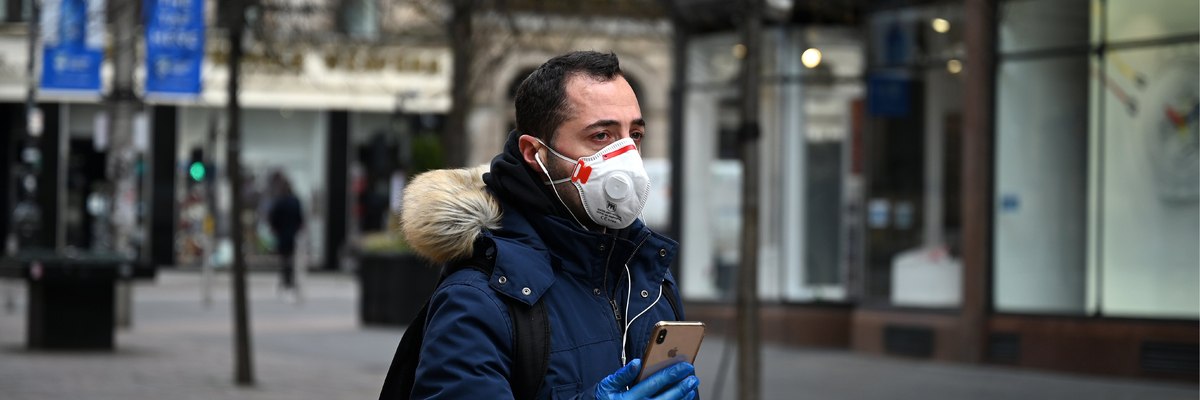YouGov research shows that most Britons expect millions to die worldwide, many are having trouble sleeping and 14% have already either lost their job or had their hours reduced – but they trust Government and will abide by measures to stop the disease
With the Government having been forced to introduce unprecedented measures to combat COVID-19 (also known as coronavirus) as a result of Britons’ failure to follow voluntary guidance, never has the role of public opinion polling been more relevant in indicating how people might behave.
Now a new YouGov survey, conducted among almost 3,000 Britons yesterday and today, looks at the impact of the coronavirus crisis on our trust in one another, our jobs, our physical and mental health, and our willingness to do as the Government says.
Brits are appalled at people failing to take the crisis seriously…
Most Brits (58%) think the Government is taking the coronavirus crisis seriously enough, with Boris Johnson’s televised speech last night having made a big impact. While 50% of those who took the survey prior to the speech said they thought the Government was about right in its approach, this rose to 61% after the speech aired.
Although most Britons think the Government is devoting the right level of attention to the coronavirus outbreak, very few believe their fellow countrymen are. A mere 8% say they think the public at large are taking the crisis seriously enough, compared to fully 87% who think they need to take it more seriously.
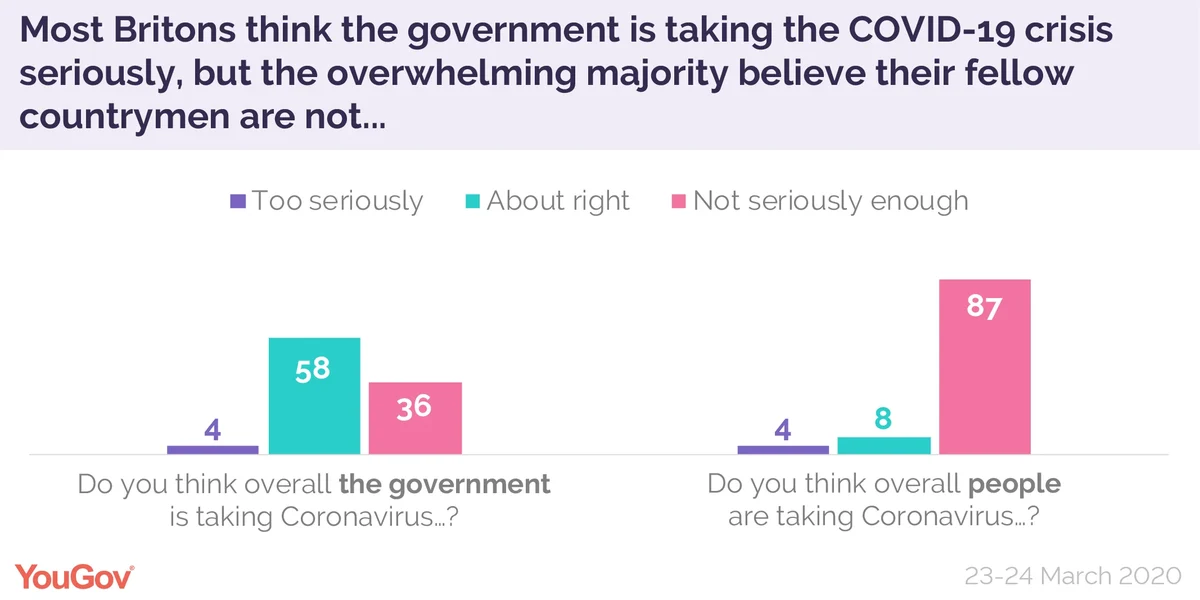
With the Government saying it has been forced to take tougher measures because so many Britons refused to remain at home, it’s also unsurprising to see that half of the nation (51%) feels worse about the state of society as a result of the crisis.
…but six in ten were out of the house at some point on Sunday
Please note, the following results refer only to those who took the survey on the first day of fieldwork, which accounts for more than 90% of the sample.
Despite the Government having already asked people to stay indoors by this point, 60% of Britons were out of their homes on Sunday, including 16% who spent more than two hours away from home.
Among those leaving their homes 65% were out for a walk or other exercise, 53% went shopping (the overwhelming majority of whom were doing grocery or pharmacy shopping) and 20% were visiting friends or family.
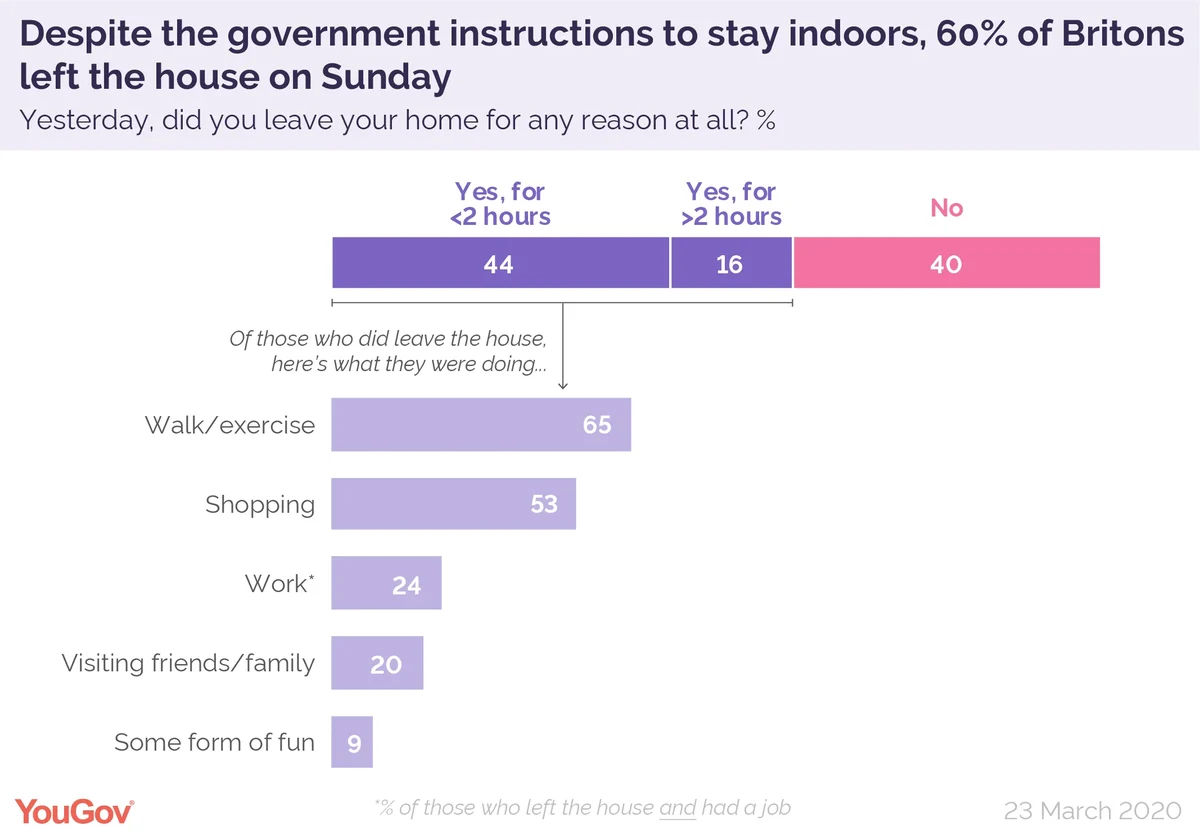
A quarter were also going to work (although this figure would doubtless have been higher had the day being referred to not been a Sunday).
One in eleven Brits (9%) also confessed to have left the house for some form of fun – and non-essential - activity.
The survey also reveals that 53% of Brits were planning to go outdoors the day after they took the survey. Those who took the survey on the Tuesday – following Boris Johnson’s speech – were, however, somewhat less likely to say they would leave (43%) than those who took it on the Monday (54%).
3% of Brits believe themselves to have caught coronavirus already
One in eleven Brits (9%) report currently feeling unwell, with 3% experiencing a continuous dry cough and 1% a high temperature – both key symptoms of the virus according to the NHS.
Despite the country being placed in lockdown in an attempt to stymie the spread of the disease, approaching two thirds of Brits (63%) put their odds of catching the disease at 50/50 or higher, and an additional 3% of Brits believe they have already caught it.
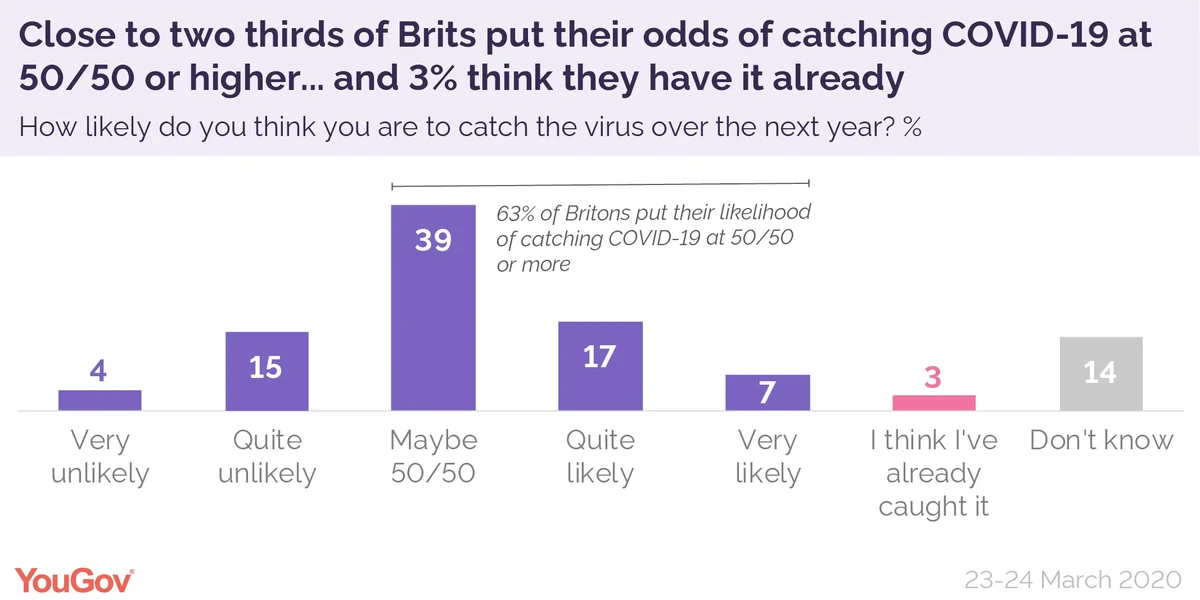
Only one in five (19%) think they are unlikely to catch the disease, although 18 to 24 year olds are notably more likely to feel less vulnerable (31%).
Should they catch the disease, close to two thirds of us (63%) are confident they would recover. Older Britons – who are more vulnerable to the disease – are less confident, however, with only 47% of those aged 65 and older feeling so sure.
One in twenty Britons have lost a job thanks to COVID-19
In terms of the impact on employment, 5% of people report having lost their job, with a further 9% saying they have had their hours or pay reduced.
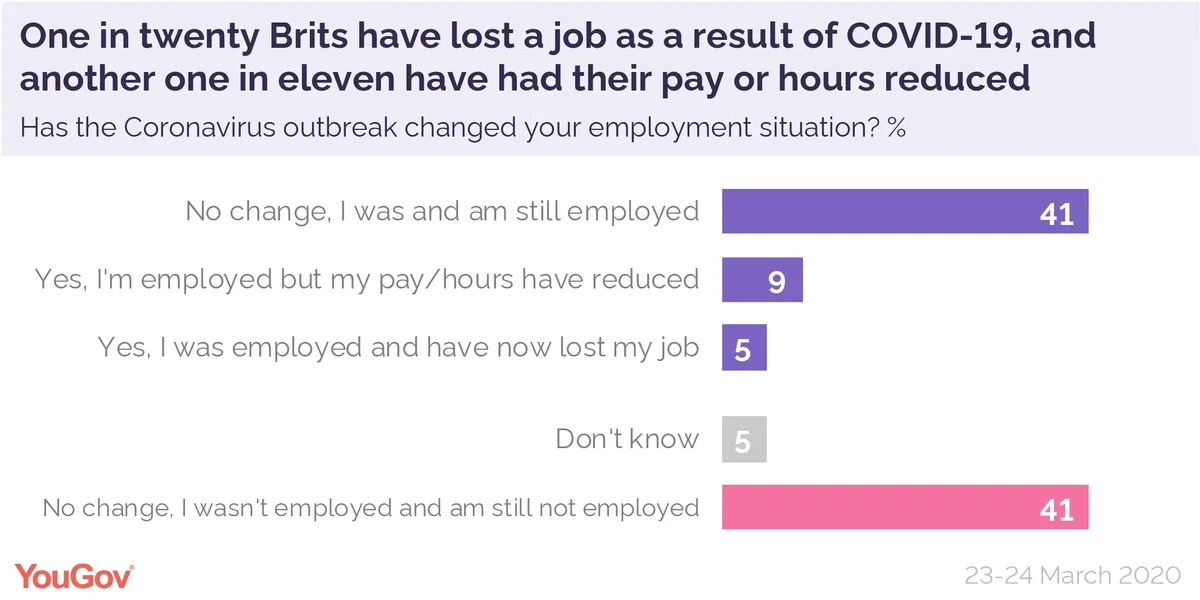
With workplaces closing their doors around the country the survey finds that the majority of workers are now working from home more often than before. More than four in ten (42%) say they are having to work from home all the time, and another 12% now work from home some of the time.
Coronavirus leaves one in three Britons feeling fearful for their future
While the majority of Brits (54%) say they think they’ll be ok, one in three (32%) say they fear for their future. Women are slightly more likely to be fearful than men (36% versus 28%).
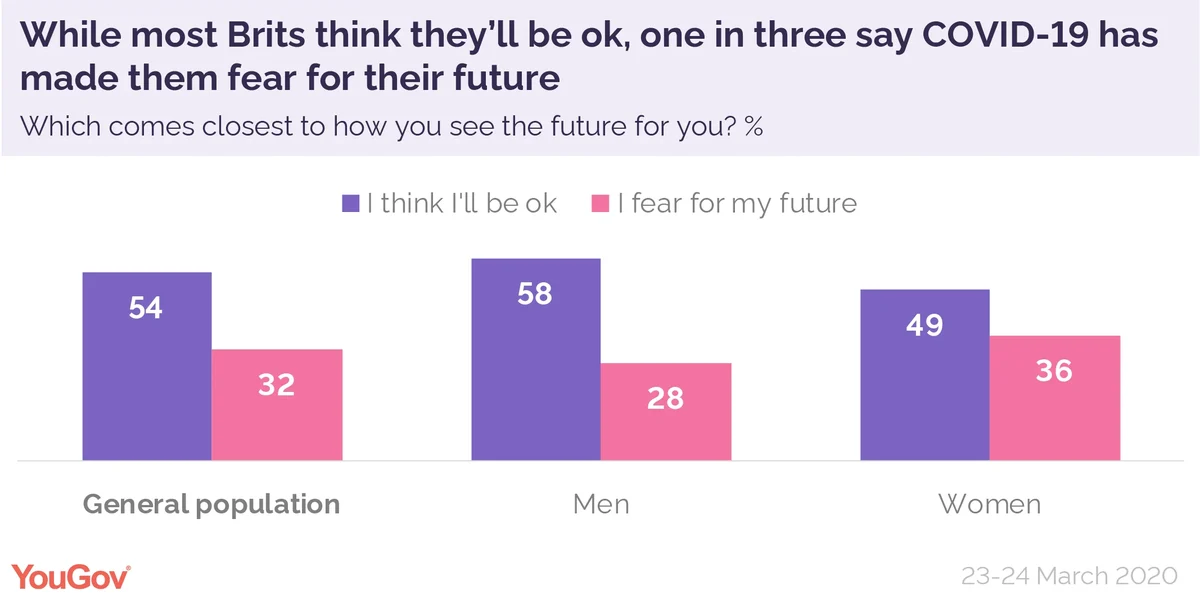
Half of Brits (52%) believe the disease is going to kill millions and millions of people worldwide, including 6% who expect it to kill hundreds of millions (which would make it more deadly than the Spanish flu pandemic of 1918-1920).
That being said, 31% of Brits expect the outbreak to be not much worse than a typical flu.
In economic terms, the overwhelming majority of Britons think the outbreak will have a significant impact – 42% expect it to leave the economy weakened for a few years, while a further 41% think the damage will be much more long term.
Only one in nine (11%) think the economy will bounce back quickly.
The impact of COVID-19 on the nation’s mental health
With so many of us now locked in at home it is no surprise to see that 24% of Britons say they feel more lonely than usual.
The survey also finds that 26% of us are sleeping less than we would usually, and that are 19% eating less too (although this could in part reflect a desire not to draw down their food stockpiles so quickly).
Nine in ten say they’ll go along with Government advice even if they disagree with it
With a snap YouGov poll last night finding that fully 93% of Britons support the Government’s new measures for combatting the spread of COVID-19, this most recent survey further highlights the high level of willingness to go along with state advice.
Asked to choose between two statements, fully nine in ten (90%) said that they came closer to agreeing with "I will probably follow the advice of the Government even if I don't agree with it or find it pointless". Just 4% felt more inclined towards "I will probably do my own thing, regardless of Government advice".
Image: Getty
